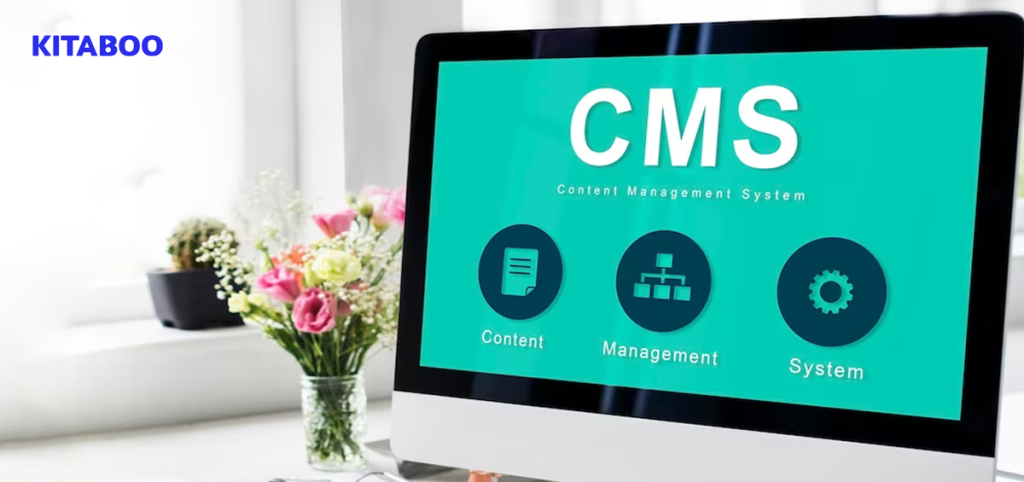
What are Educational Content Management Systems? How to Use Them?
Learning technologies are growing rapidly, especially since the world shifted to a fully digital learning option during the COVID-19 pandemic. Thanks to the rising popularity of digital learning, innumerable tools and platforms are available to enhance education. These include Content Management Systems (CMS), Learning Management Systems (LMS), and more.
As we move towards a more fast-paced and technology-driven learning mechanism, seamless delivery of educational content will be crucial for organizations and educational institutions. One of the least understood but crucial technologies is the Educational Content Management System (eCMS).
In this blog, we will understand what eCMS is, what makes it unique, and why it is the ideal option for training or learning needs.
Table of Contents
I. What is an Educational Content Management System?
III. Key Features of Educational Content Management Systems
- Centralized Content Management
- Multi-Format Distribution
- Content Authoring & Reusability
- Efficient Workflows
IV. The Final Word
What is an Educational Content Management System?
An Educational Content Management System (eCMS) is an effective instrument for the organization and distribution of learning content. It is a software or platform designed to facilitate the creation, management, and delivery of educational content in digital formats.
Due to its simplicity, it has become the backbone of online learning environments, providing educators, administrators, and learners with a centralized hub to organize, distribute, and access educational materials.
Educational CMS vs. LMS
When talking about eCMS, a common misconception that can arise is that – it is exactly like a Learning Management Software (LMS). However, this is not true.
Both LMS and eCMS have different target audiences and capabilities for content management. Let’s take a closer look at the distinctions between these two types of systems:
| Parameters | Educational Content Management Systems | Learning Management Systems |
| Focus | Primarily emphasize the creation, management, and delivery of educational content. They serve as repositories for educational materials, including text, multimedia, and interactive resources. | They are designed primarily to manage and facilitate the learning process. They provide tools for course administration, student tracking, assessments, and communication. |
| Usage | They enable educators to create, organize, and store educational content efficiently. This content can be static (like textbooks or lecture notes) or dynamic (like online assignments or interactive modules). | LMS platforms allow educators to create and manage entire courses. They include features for course enrollment, grading, tracking progress, and managing assignments. |
| Collaborative Tools | Educational CMS may include tools for communication and collaboration, such as discussion forums and chat rooms, but these features are typically secondary to content management. | LMS platforms prioritize communication and collaboration tools, fostering interaction among students and instructors through features like discussion boards, chat, and virtual classrooms. |
| Customizations | These systems often allow institutions to customize the platform to their specific needs, including branding and layout modifications. | Limited customizations. LMS often supports the creation of structured learning paths, allowing educators to guide students through a predetermined curriculum. |
| Assessment Features | While some Educational CMS platforms include basic assessment features like quizzes, they may not provide the comprehensive assessment and grading capabilities of a dedicated LMS. | LMS offers robust assessment and grading features, including creating quizzes, tests, and assignments, tracking student performance, and automating grading. |
Some of the common features between eCMS and LMS include:
- Content Authority and Delivery
- Multi-Format Support
- Content Templates
- Analytics & Reporting
- Mobile Support
It is highly recommended that businesses integrate their eCMS with the LMS, as it can help organizations optimize digital content creation and distribution while ensuring that it adapts to personalized learning paths, competency levels, and learning needs.
eCMS solutions, such as KITABOO, can easily integrate with existing LMS using LTI standards, making it the ideal option for learners, instructors, and course creators. You can read more about how KITABOO facilitates key LMS integrations here.
Key Features of Learning Content Management Systems
Now that we know how eCMS is different from LMS, let us look at some of the key features of an Educational Content Management System.
At its core, eCMS focuses on content management, multi-format publishing, reusability, and interactive learning mechanisms.
Here are some of the core functionalities you can expect from an Educational CMS:
Centralized Content Management
eCMS provides authors and content creators with a single-sourced or centralized platform to create, store, search, and distribute content. From quickly finding content to updating or publishing new content, an eCMS is the ideal playground for multiple content requirements.
Content creators can simply search from existing libraries to leverage it in their module creation. It also includes built-in features to allow authors to create, track content lifecycle, easily update it, and provide granular details on existing content.
Multi-Format Distribution
eCMS allows educators and authors to create highly interactive and optimized content in multiple formats. Be it in Microsoft Word, PDF, SCORM eLearning, HTML5, Microsoft PowerPoint, or other formats, content creators can publish content from one source and output it in different formats.
This makes the content dynamic and ideal for use in several scenarios. This content can also be optimized for different devices, screen sizes, and platforms, making it ideal for viewing on laptops, smartphones, and even tablets.
Content Authoring & Reusability
Since eCMS manages all content in a single repository, authors can use it to create and distribute bite-sized pieces of content for several courses, lessons, and purposes. This content can then be linked to existing assets and updated with the most up-to-date information. Thus, previous versions, copyright statements, author rights, and other vital information can be retained without needing authors or educators to start afresh.
Efficient Workflows
eCMS can adapt and repurpose existing content based on student requirements, allowing them to create efficient workflows for each platform or course.
For example, suppose you have designed a course in a particular format. In that case, it can be exported or imported into another format and distributed accordingly, making it ideal for learners on that platform. This takes just a few clicks, making content creation and distribution efficient.
Also Read: PDF to EPUB3 Conversion Automation
The Final Word
As we look ahead, it’s clear that Educational Content Management Systems will continue to evolve, incorporating cutting-edge technologies and pedagogical advancements. They will remain indispensable in the quest to deliver high-quality education in flexible, accessible, and engaging ways, both in traditional and online learning environments.
KITABOO is an eCMS that can be integrated with any LMS that supports LTI 1.1 and 1.3. This award-winning content publishing and distribution platform offers cutting-edge tools, features, and capabilities to enhance the experience of publishers, educational institutions, and learners. Integrating KITABOO, the leading digital textbook platform with your existing LMS can help you get the benefits of both platforms and help create interactive content while utilizing the full potential of your LMS.
Suggested Reads:
Discover how a mobile-first training platform can help your organization.
KITABOO is a cloud-based platform to create, deliver & track mobile-first interactive training content.



